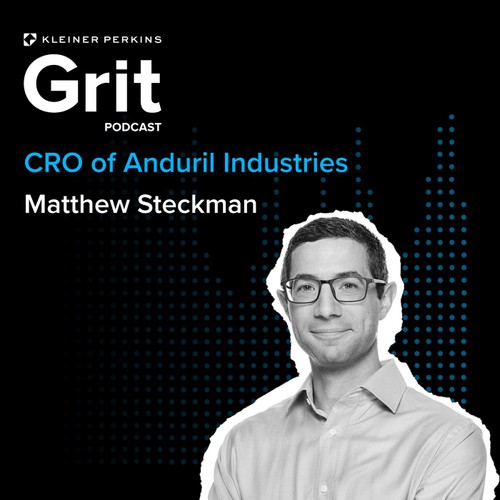
 Grit
Grit #158 CRO Anduril Industries, Matt Steckman: On Defense
Oct 2, 2023
CRO of Anduril Industries, Matt Steckman, talks about the importance of defense tech, barriers to entry, government decision making, utilizing AI for border security, acquisition of Dive Technologies, qualities for success, and hiring needs in the defense industry.
Chapters
Transcript
Episode notes
1 2 3 4 5 6 7
Introduction
00:00 • 2min
Building the Next Great Defense Prime
01:34 • 10min
The Microsoft DOJ Trials and Understanding Government Decision Making
12:00 • 23min
Utilizing AI Technology for Border Security
34:50 • 3min
Acquisition of Dive Technologies and Building Submarines: A Game-Changer
37:31 • 11min
Qualities for Success and the Importance of Performance
48:34 • 10min
Hiring and the Meaning of Grit
58:12 • 2min
